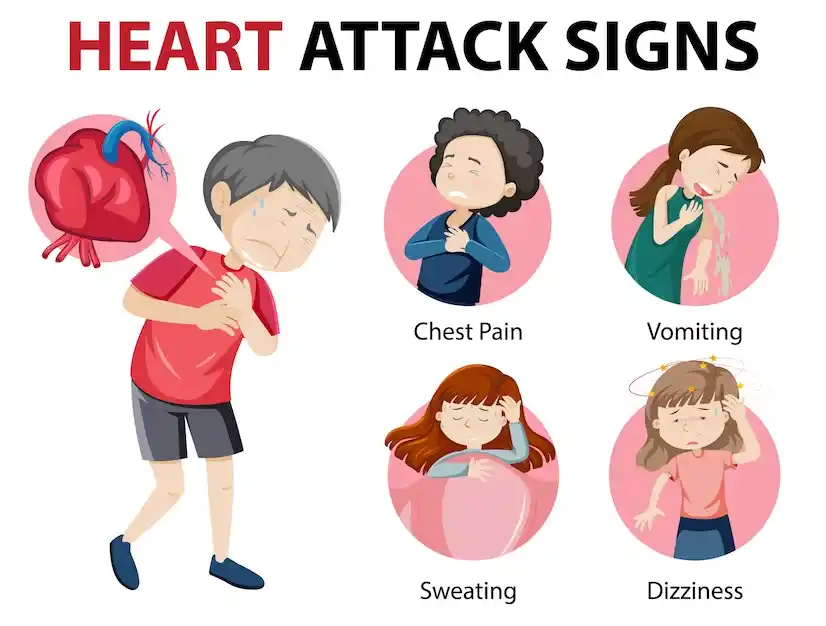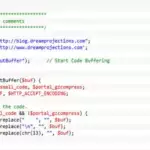Heart Attack Symptoms: A Comprehensive Guide
Heart attacks, also known as myocardial infarctions, are life-threatening medical emergencies that can strike anyone, regardless of age or gender. Recognizing the symptoms of a heart attack is crucial for early intervention and potentially saving a life. In this comprehensive guide, we’ll explore the various heart attack symptoms, their significance, and how to respond when you or someone you know experiences them.
The Importance of Recognizing Heart Attack Symptoms
- Firstly, understanding the importance of recognizing heart attack symptoms is paramount. Heart attacks occur when blood flow to the heart muscle is blocked, usually by a blood clot. The longer the heart muscle is deprived of blood and oxygen, the more damage occurs. Early detection and prompt medical intervention can significantly improve the chances of survival and minimize heart damage.
- Secondly, heart disease remains the leading cause of death globally, claiming millions of lives each year. Heart attacks are a major contributor to these statistics. By being aware of the symptoms and knowing how to respond, we can reduce the mortality rate associated with heart attacks and improve overall cardiovascular health.
- In addition, knowing the signs of a heart attack is not only crucial for your health but for the well-being of your loved ones as well. You may be the first to recognize the symptoms of someone experiencing a heart attack, and your actions can make a significant difference in their survival and recovery.
Common Heart Attack Symptoms
To begin with, it’s essential to familiarize yourself with the most common heart attack symptoms. While the following list provides an overview, keep in mind that symptoms can vary from person to person. Recognizing any of these signs warrants immediate attention:
- Chest Pain or Discomfort: Firstly, chest pain or discomfort is often the hallmark symptom of a heart attack. It is commonly described as a feeling of tightness, pressure, squeezing, or fullness in the chest. This sensation may last for several minutes or come and go.
- Radiating Pain: Secondly, the pain from a heart attack can radiate to other parts of the upper body. It may extend to the arms, particularly the left arm, the back, jaw, neck, or even the stomach. The sensation may be intermittent or constant.
- Shortness of Breath: Additionally, many people experiencing a heart attack report sudden and severe shortness of breath. It can occur with or without chest pain and is often accompanied by a feeling of impending doom.
- Profuse Sweating: Moreover, profuse sweating, often described as cold sweats, can be an indicator of a heart attack. This sweat is different from normal perspiration and can occur even in cool conditions.
- Nausea and Vomiting: Furthermore, nausea and vomiting can accompany heart attack symptoms, especially in women. These symptoms are often mistaken for stomach problems.
- Dizziness or Lightheadedness: In addition, some individuals may feel dizzy or lightheaded during a heart attack. This can be caused by a drop in blood pressure resulting from a compromised heart function.
- Fatigue: To add to this, unusual and overwhelming fatigue, often experienced days or weeks before a heart attack, can be an important early warning sign.
- Anxiety and Restlessness: Furthermore, heightened anxiety and a sense of restlessness can accompany heart attack symptoms. It’s important not to dismiss these emotional indicators.
Recognizing Heart Attack Symptoms in Women
- Moreover, it’s essential to highlight that heart attack symptoms in women can be different from those experienced by men. Women may not always present with classic chest pain, which can lead to delayed diagnosis and treatment.
- To illustrate, women may experience subtle symptoms, such as extreme fatigue, shortness of breath, nausea, or discomfort in the back, neck, jaw, or stomach. These atypical symptoms can be misinterpreted, potentially delaying life-saving interventions.
How Age Affects Heart Attack Symptoms
Additionally, it’s worth noting that age can impact the way heart attack symptoms manifest. Instead, they might have more pronounced shortness of breath, confusion, or fatigue.
Response to Heart Attack Symptoms
Moving forward, if you or someone you’re with experiences any of the aforementioned symptoms, it’s crucial to act swiftly and responsibly. The following steps should be taken:
- Call 911 Immediately: Firstly, call 911 without delay. Emergency medical services (EMS) can provide life-saving treatment on the way to the hospital.
- Chew Aspirin: Secondly, if the person experiencing symptoms is conscious and not allergic to aspirin, have them chew an aspirin tablet (usually 325 mg) to help prevent further blood clotting.
- Stay Calm: Additionally, it’s vital to remain as calm as possible. Panic can exacerbate the situation. Reassure the person in distress and encourage them to sit down if they feel faint.
- Use an Automated External Defibrillator (AED): Furthermore, if an automated external defibrillator (AED) is available, use it if the person becomes unresponsive and does not have a pulse. AEDs can provide life-saving shocks to restore a regular heart rhythm.
What Not to Do
In contrast, some actions should be avoided when someone is experiencing heart attack symptoms:
- Do Not Drive to the Hospital: Firstly, driving to the hospital is not advisable.
- Do Not Ignore Symptoms: Secondly, ignoring or downplaying symptoms is dangerous. It’s better to seek medical attention and later discover it wasn’t a heart attack than to delay treatment and regret it.
Preventing Heart Attacks
There are several things you can do to help prevent a heart attack, including:
- Quit smoking: Smoking is one of the leading risk factors for heart attack.
- Eat a healthy diet: Eating a diet that is low in saturated and trans fats, high in fruits, vegetables, and whole grains, and low in sodium can help reduce your risk of heart attack.
- Exercise regularly: Aim for at least 30 minutes of moderate-intensity exercise most days of the week.
- Control your blood pressure: High blood pressure is a major risk factor for heart attack.
- Manage your cholesterol: High cholesterol can lead to plaque buildup in the coronary arteries, which can increase your risk of heart attack.
- Treat diabetes: Diabetes is a risk factor for heart attack. If you have diabetes, it is important to manage your blood sugar levels carefully.
Conclusion
- In conclusion, understanding heart attack symptoms and how to respond is a matter of life and death. Recognizing the signs, especially in atypical cases or among different age groups, is vital for early intervention and improved outcomes.
- As we’ve explored, heart attack symptoms can vary, and their recognition is the first step toward receiving the necessary medical attention. Whether it’s chest pain, shortness of breath, radiating discomfort, or any other symptoms, the key is to act swiftly and responsibly. Immediate medical care can make the difference between life and death.
- Prevention is equally important, and adopting a heart-healthy lifestyle can significantly reduce your risk of experiencing a heart attack. Remember that a heart-healthy diet, regular exercise, smoking cessation, stress management, and routine check-ups can all contribute to a longer, healthier life.
- By being aware of heart attack symptoms and taking proactive steps to reduce risk, you can protect yourself and your loved ones from this life-threatening condition. Stay informed, stay healthy, and take action when needed—your heart will thank you for it.
Please visit us to learn more about Health and Information.





